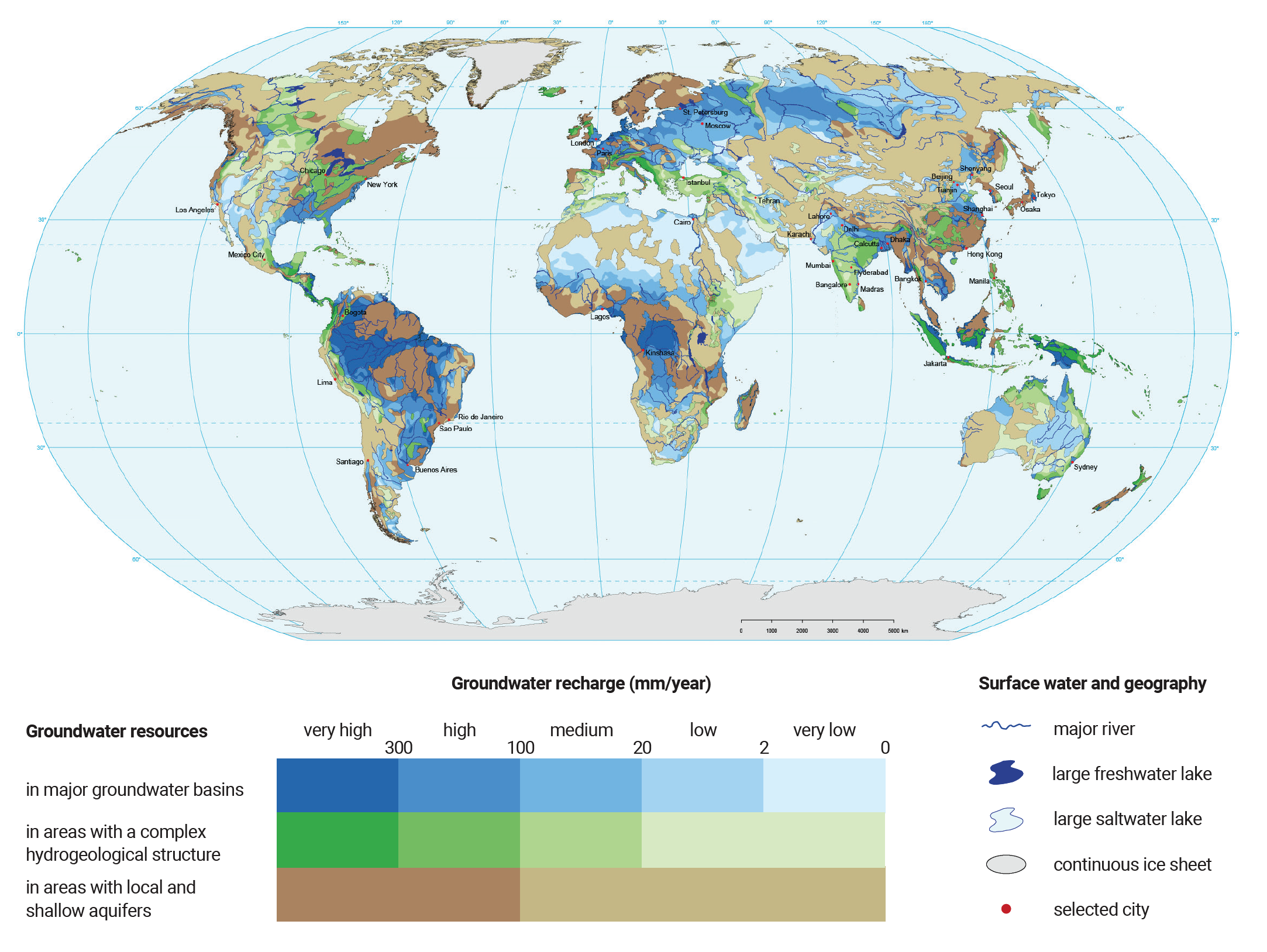Ahmedabad
(Head Office)Address : 506, 3rd EYE THREE (III), Opp. Induben Khakhrawala, Girish Cold Drink Cross Road, CG Road, Navrangpura, Ahmedabad, 380009.
Mobile : 8469231587 / 9586028957
Telephone : 079-40098991
E-mail: dics.upsc@gmail.com

UN World Water Development Report 2023
News: Recently, ‘United Nations World Water Development Report 2023: partnerships and cooperation for water’, was released.
Background:
The WWDR is published by UNESCO on behalf of UN-Water and its production is coordinated by the UNESCO World Water Assessment Programme. It is an annual report released on Launched on World Water Day (22nd March) every year.
Key Findings:
Globally, two billion people do not have safe drinking water and 3.6 billion lack access to safely managed sanitation.
The global urban population facing water scarcity is projected to increase from one-third (2016) to nearly half of the global urban population in 2050, with India projected to be the most severely affected.
80% of people living under water stress lived in Asia; in particular, northeast China, as well as India and Pakistan.
Key recommendations:
Smart management and conservation of the world’s water resources should bring together governments, businesses, scientists, civil society and communities – including indigenous communities – to design and deliver concrete solutions.
Water-energy-food nexus is critical in a transboundary context For example, transboundary water cooperation arrangement established by the Mahakali Treaty (Pancheshwar Multipurpose Project) between India and Nepal, which aims to achieve water and energy security for both parties.
Partnerships that focus on knowledge co-creation instead of knowledge transfer aim to embrace the diversity of expertise and experience within a knowledge system.
Water resources management practices should incorporate traditional elements: For example, paar systems in western Rajasthan, India, and amunas in Peru
Use of technology - Google began a flood forecasting initiative in 2018, with the goal of preventing catastrophic damage.
About Paar systems:
Paar is a common water harvesting practice in the western Rajasthan region. It is a common place where the rainwater flows from the agar (catchment) and in the process percolates into the sandy soil. In order to access the rajani pani (percolated water) kuis or beris are dug in the agor (storage area). Kuis or beris are normally 5 metres (m) to 12 m deep.
India’s Jal Jeevan Mission and some case studies:
Started in 2019, The Jal Jeevan Mission aims to deliver safe and enough drinking water to all rural Indian households by 2024 through individual household tap connections.
It is the Ministry of Jal Shakti’s main programme
It focusses on Community-based approach to water, with comprehensive information, education, and communication as a fundamental component of the goal.
Over successful implementation of water conservation under JJM, the role of Village water and sanitation commitees (VWSC) has been important. Water Scarcity in Junagadh, Gujarat
Main issue - Dependence on streams and open wells; semi-arid climate.
Solution - Combining surface water and groundwater sources for the conjunctive system; constructing borewells near water channels to recharge groundwater; block-level water treatment plant supplying treated water.
Implementing agencies – Water and sanitation management organisation (WASMO) and Gujarat Water and sewage supply board (GWSSB) since 2002 while VWSCs overseeing operation and maintenance of supply system; district-level laboratory monitoring water quality.
Groundwater depletion in Dharwad, Karnataka
Main issue - Water scarcity due to overexploitation, population pressure, and discharge of effluents and agricultural chemicals; erratic rainfall and absence of perennial surface-water source.
Solution - Reviving natural ponds for rainwater harvesting and subsurface recharge; formation of VWSCs.
Implementation - Revival of natural ponds identified in villages for JJM implementation in 2020; VWSCs looking after distribution network; periodic monitoring of supplied water quality in district laboratory.

Address : 506, 3rd EYE THREE (III), Opp. Induben Khakhrawala, Girish Cold Drink Cross Road, CG Road, Navrangpura, Ahmedabad, 380009.
Mobile : 8469231587 / 9586028957
Telephone : 079-40098991
E-mail: dics.upsc@gmail.com
Address: A-306, The Landmark, Urjanagar-1, Opp. Spicy Street, Kudasan – Por Road, Kudasan, Gandhinagar – 382421
Mobile : 9723832444 / 9723932444
E-mail: dics.gnagar@gmail.com
Address: 2nd Floor, 9 Shivali Society, L&T Circle, opp. Ratri Bazar, Karelibaugh, Vadodara, 390018
Mobile : 9725692037 / 9725692054
E-mail: dics.vadodara@gmail.com
Address: 403, Raj Victoria, Opp. Pal Walkway, Near Galaxy Circle, Pal, Surat-394510
Mobile : 8401031583 / 8401031587
E-mail: dics.surat@gmail.com
Address: 303,305 K 158 Complex Above Magson, Sindhubhavan Road Ahmedabad-380059
Mobile : 9974751177 / 8469231587
E-mail: dicssbr@gmail.com
Address: 57/17, 2nd Floor, Old Rajinder Nagar Market, Bada Bazaar Marg, Delhi-60
Mobile : 9104830862 / 9104830865
E-mail: dics.newdelhi@gmail.com